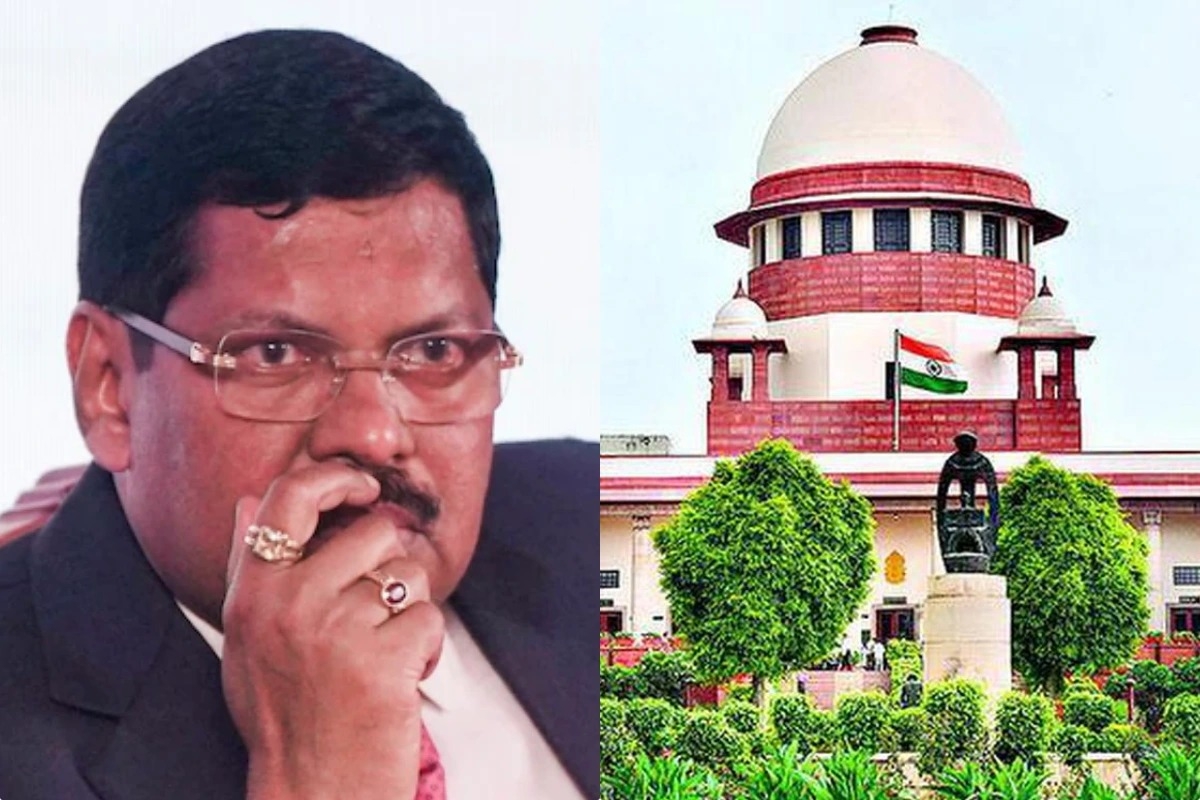Supreme Court’s Dismissal of Khajuraho Idol Plea Sparks Outrage: CJI’s Remarks Ignite Firestorm Over Faith and Justice

In a decision that has sent shockwaves across the nation, the Supreme Court of India, under Chief Justice BR Gavai, dismissed a public interest litigation on September 16 seeking the restoration of a mutilated seven-foot idol of Bhagwan Vishnu at the UNESCO-listed Javari temple in Khajuraho, Madhya Pradesh.
The court’s ruling, which deferred the matter to the Archaeological Survey of India (ASI), might have been a routine jurisdictional call, except for a casual remark from the bench that has ignited a firestorm of criticism.
Telling a Hindu devotee to “pray to the deity itself” for resolution, Gavai’s words have been branded as a stunning lapse in judicial sensitivity, prompting demands for an apology, resignation, or even impeachment from advocates, public figures, and millions of social media users.
As the controversy swells, with over 2.8 million online engagements in just three days, it raises troubling questions about the judiciary’s ability to navigate India’s delicate religious landscape with the impartiality it professes.
The petition, filed by advocate Rakesh Dalal, pleaded for the restoration of an idol damaged centuries ago during Mughal invasions, a symbol of cultural heritage and faith for millions.
The Supreme Court, however, washed its hands of the case, asserting that the ASI holds sole authority over the Khajuraho temple complex, a collection of intricately carved monuments recognized globally for their historical and artistic value.
Yet, it was Gavai’s offhand suggestion during the hearing, reported by Bar & Bench and corroborated by court observers, that turned a legal footnote into a national uproar. The comment, dripping with what many perceive as sarcasm, struck a raw nerve in a country where religion and identity are deeply intertwined, especially given the idol’s desecrated state, a wound that has festered since the 11th century.
Critics argue that the judiciary, meant to be a beacon of fairness, has instead dimmed its light with a remark that feels more like a taunt than a judgment.
The backlash has been swift and fierce. Advocate Vineet Jindal, a vocal proponent of Hindu sentiments, penned a letter to the Chief Justice and the President of India, demanding the immediate withdrawal of the “hurtful remarks” to uphold judicial impartiality.
His missive, shared widely on X, has become a rallying cry for those who see Gavai’s words as an affront to the constitutional guarantee of religious freedom under Article 25. Public figures like Mohandas Pai, a respected technocrat, and Nupur Jindal, a prominent commentator, have joined the chorus, labeling the statement as “insensitive” and a betrayal of the court’s secular mandate.
On social media, the hashtag #ImpeachTheCJI has trended, with millions of interactions, likes, retweets, and heated debates, reflecting a public seething with anger. The Vishva Hindu Parishad and Shiv Sena MP Priyanka Chaturvedi have also weighed in, amplifying the call for accountability and raising the stakes for a judiciary already under scrutiny.
To understand the depth of the outrage, one must look at the historical context. The Javari temple, part of the Khajuraho group of temples built by the Chandela dynasty between the 9th and 12th centuries, stands as a testament to India’s rich cultural past.
Its idol of Lord Vishnu, beheaded during Mughal incursions, has remained in ruins despite repeated appeals to authorities, a fact underscored by a 2019 report from the Indian Council of Historical Research.
That study revealed that only about 20% of damaged religious artifacts at ASI-protected sites have been restored since India’s independence, a statistic that paints a picture of neglect. For devotees, the idol is not just stone but a sacred emblem, and the court’s dismissal, coupled with Gavai’s remark, feels like a double blow, suggesting that their faith is a matter for divine intervention rather than human justice.
This historical grievance, buried under layers of bureaucracy, has now exploded into a public crisis, exposing the judiciary’s apparent disconnect from the people it serves.
The legal process for addressing such a controversy is fraught with challenges. Impeachment, as outlined in Article 124(4) of the Constitution, requires a motion in Parliament supported by a two-thirds majority in both houses, a threshold rarely met in India’s polarized political landscape.
The last serious attempt, against Justice V. Ramaswami in 1993 for alleged financial misconduct, failed due to lack of consensus. Similarly, the 2011 motion against Justice Soumitra Sen of the Calcutta High Court succeeded only after his resignation, highlighting a loophole that allows judges to evade accountability.
For Gavai, with just over two months left in office, the calls for his removal may be more symbolic than practical, a public venting of frustration rather than a viable outcome. Yet, the sheer volume of outrage, amplified by viral X threads from users like @MeghUpdates and @KishoreIyer5 , suggests that the judiciary cannot ignore this storm indefinitely.